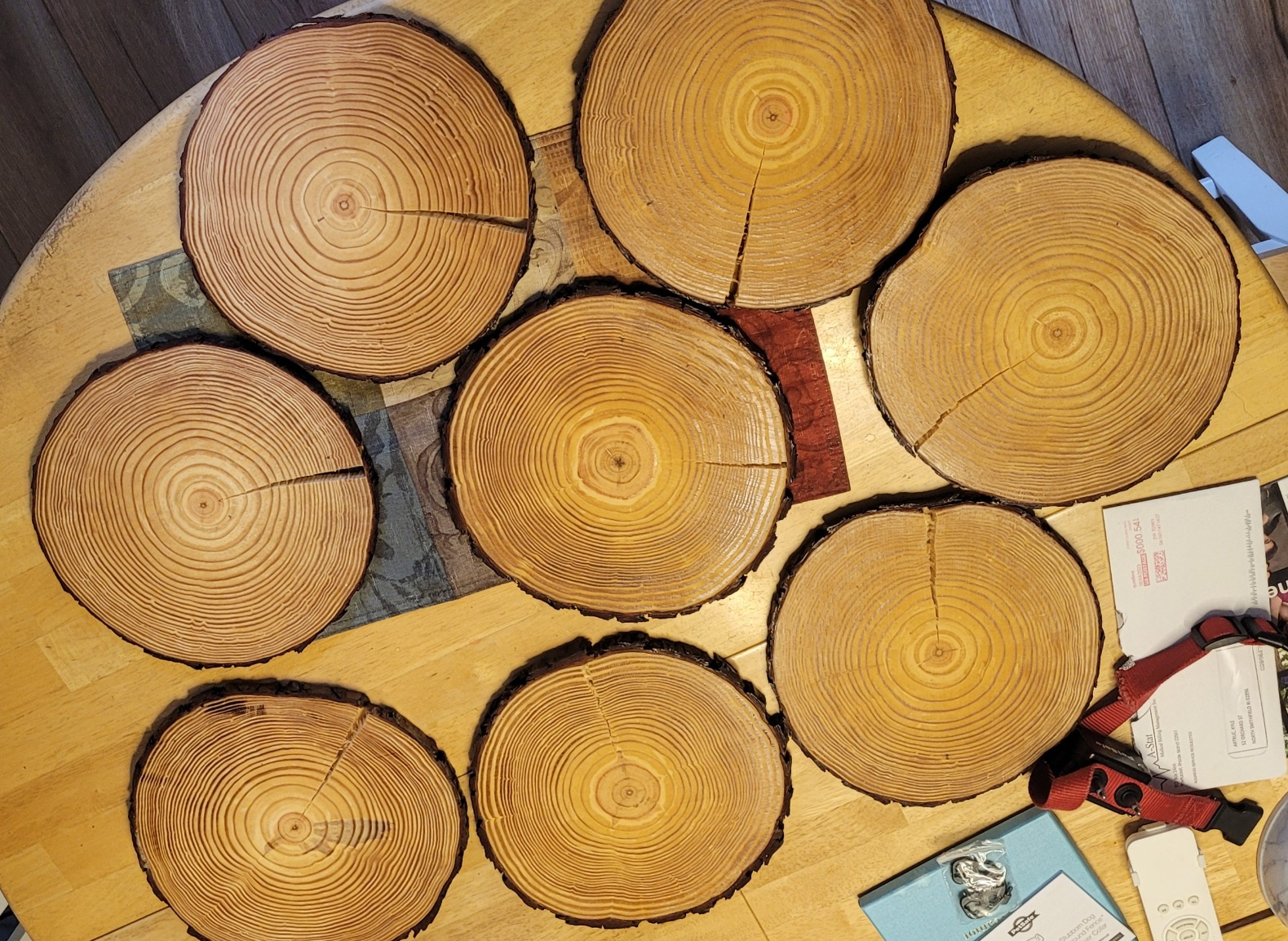I think some people use a vacuum chamber and epoxy to stabilize the wood. I also wonder if soaking the biscuits in a mineral oil bath for a few days might do the trick? Personally I've never had much luck with larger pieces.
I find it interesting that the untouched rounds are (so far!) doing better. I don't have any answers, but I'll speculate.
Shellac is pretty permeable to water vapour. I don't know how much it slows the exchange of water vapour, but it might not be much.
I would be curious how sanding alone affects stability. I can imagine sanding increasing the surface area exposed to the atmosphere, speeding up the exchange of water vapour.
I'm going to experiment a bit.
While you're at it, maybe plane or scrape a couple of rounds, too. If sanding marks and raised grain really do increase the exposed area, getting rid of them will reduce it.
I would think someone out there has already done the experiments, but I didn't find anything with a quick look.
Also, if you're not committed to shellac, there are coatings that are less permeable to water vapour.
My guess is that the alcohol rehydrated the cells, causing them to expand and then shrink back. This might have introduced just enough stress for them to split.
What would be a good finish to use then?
I'd try spray-on lacquer.
That looks dope. Are they all from the same tree?
That's some loose wood
Woodworking
A handmade home for woodworkers and admirers of woodworkers. Our community icon is submitted by @1985MustangCobra@lemmy.ca whose father was inspired to start woodworking by Norm and the New Yankee Workshop.
